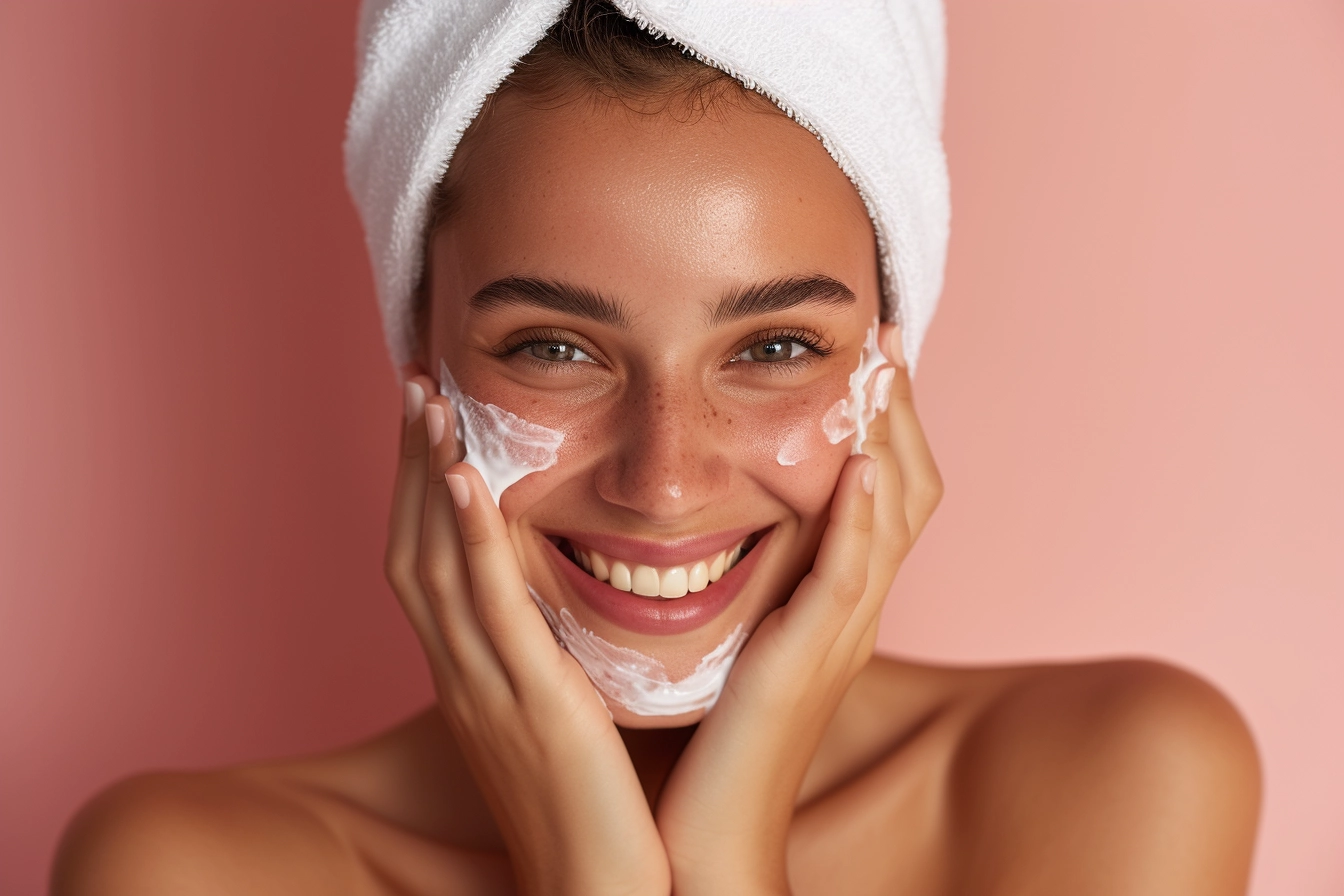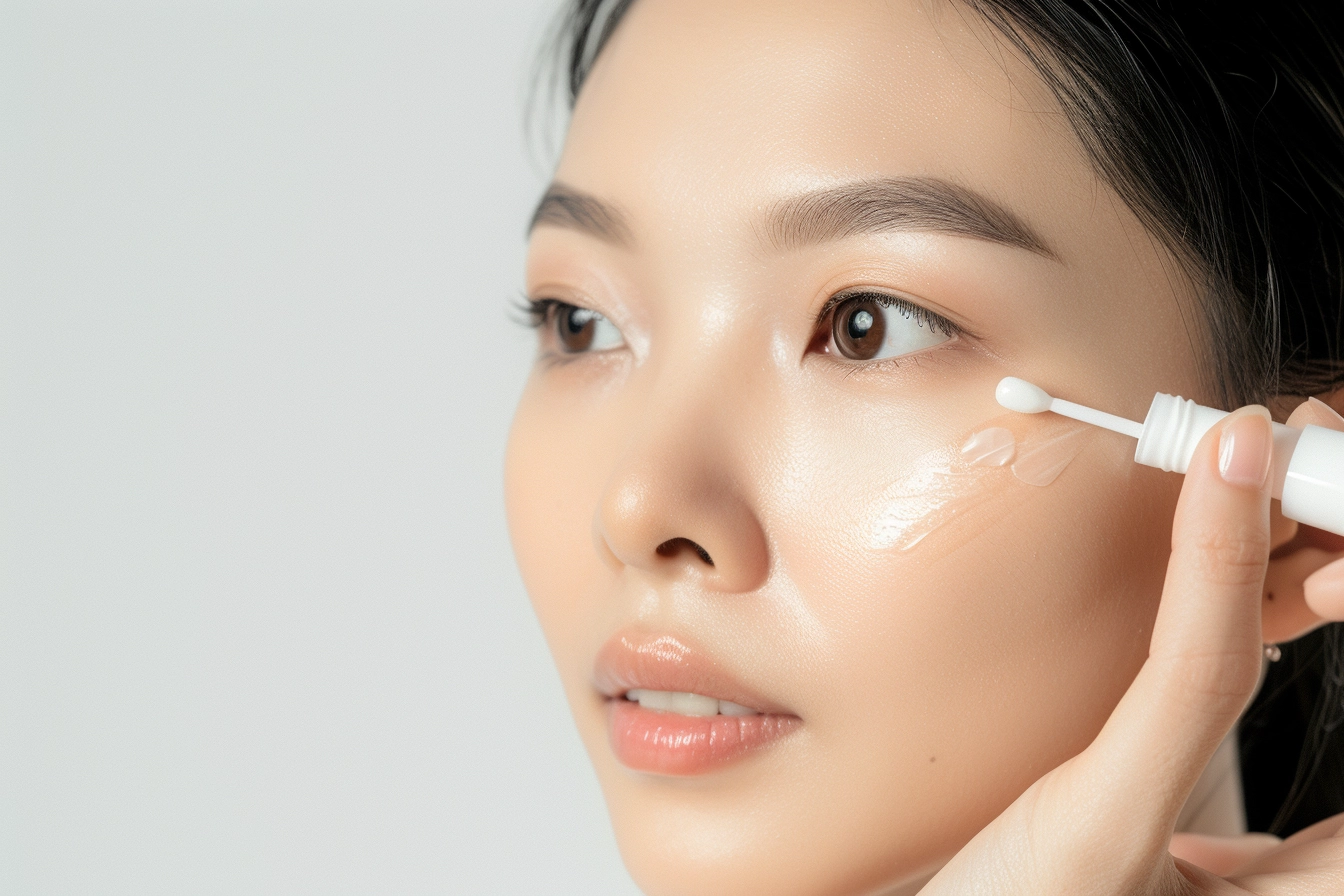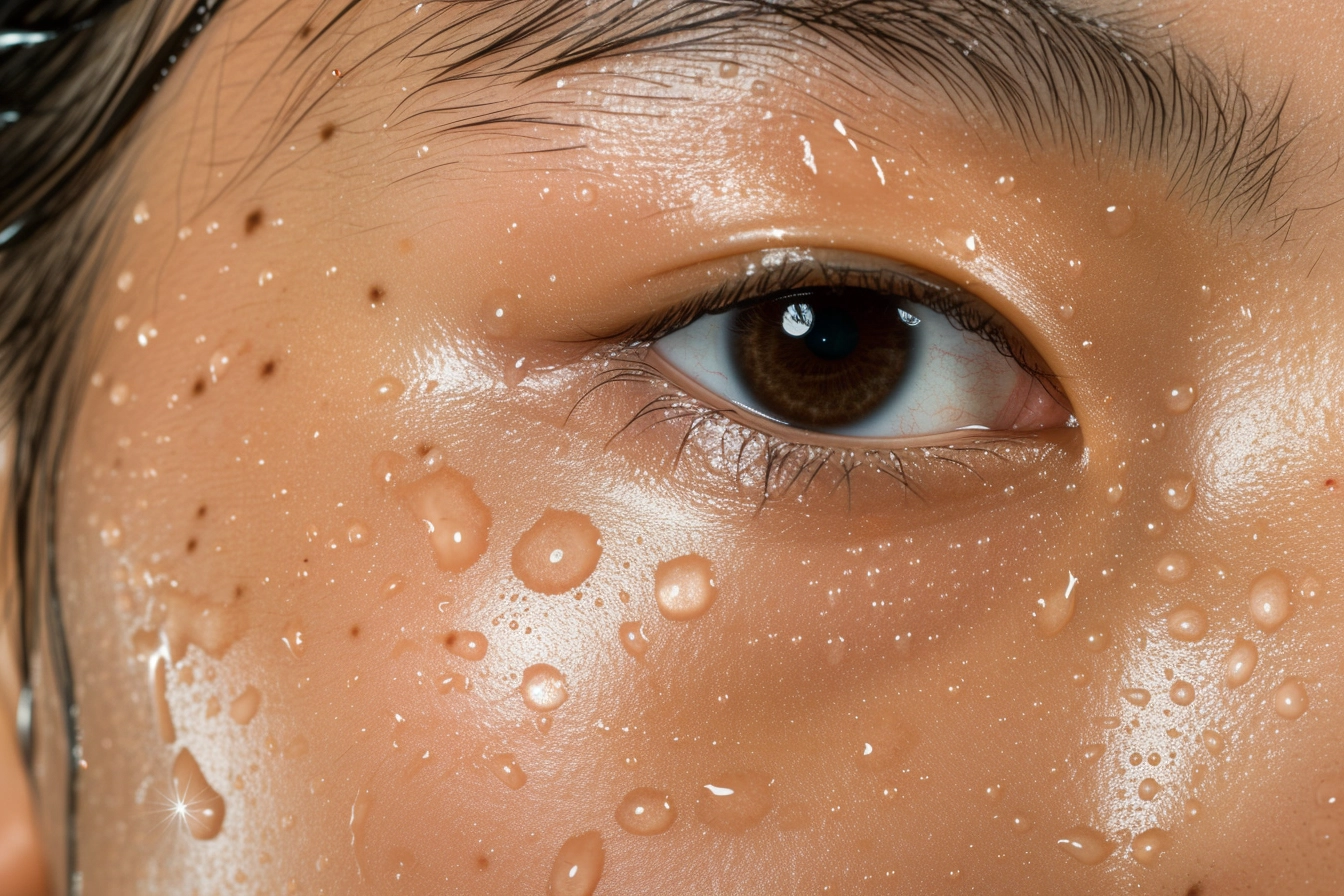In the realm of skincare, the emphasis on skin moisture cannot be overstated. Achieving a balanced, hydrated complexion is a quest that many embark on, but only a few master. This comprehensive guide dives into the essence of Skin Moisture Mastery, revealing revolutionary techniques that promise to unlock radiant, hydrated skin. With a focus on the pivotal role of skin moisture, we embark on a journey to explore innovative methods, ingredients, and routines designed to nourish your skin profoundly.
Article Contents
- 1 The Science Behind Skin Hydration
- 2 Crafting Your Skin Moisturize Routine
- 3 Lifestyle Adjustments for Enhanced Skin Hydration
- 4 Embracing Skin Moisture Mastery
- 5 The Essential Guide to Skin Moisture: Nurturing Your Skin’s Health and Radiance
- 6 Understanding Skin Moisture: The Foundation of Healthy Skin
- 7 Revolutionary Hydration Techniques and Ingredients
- 8 Crafting a Moisture-Rich Skincare Routine
- 9 Lifestyle Habits for Optimal Skin Moisture
- 10 The Benefits of Homemade Skin Moisturizers
- 11 Essential Ingredients for Your Skin Moisturizer
- 12 Step-by-Step Guide to Making Your Skin Moisturizer
- 13 Tips for Customizing Your Moisturizer
The Science Behind Skin Hydration

Understanding lunatogel the science of skin hydration is the first step to mastering skin moisture. The skin’s outermost layer, the stratum corneum, acts as a barrier protecting our bodies from external aggressors. This barrier retains moisture and essential nutrients, ensuring our skin remains supple and resilient. However, various factors such as environmental pollutants, harsh skincare products, and aging can compromise this barrier, leading to dryness and dehydration.
Revolutionary Hydration Techniques
Recent advancements in skincare technology have introduced a plethora of revolutionary techniques to enhance skin moisture. From state-of-the-art hydrating serums to innovative moisturizing treatments, these methods are designed to penetrate deeply into the skin, delivering hydration to the layers where it’s most needed.
Hyaluronic Acid: A Hydration Powerhouse
One of the most significant breakthroughs in skin moisturize mastery is the widespread use of hyaluronic acid (HA). Known for its remarkable ability to hold up to 1000 times its weight in water, HA acts as a hydration magnet, drawing moisture into the skin and locking it in place. Incorporating HA-rich products into your skincare routine can significantly improve your skin’s moisture levels, leaving it plump, radiant, and intensely hydrated.
Advanced Moisturizing Treatments
Beyond topical products, advanced moisturizing treatments such as hydro-facials and microneedling with hydration serums are gaining popularity. These procedures allow for deeper penetration of hydrating ingredients, effectively boosting skin moisture from within. They not only improve hydration but also enhance the skin’s overall health and appearance by stimulating collagen production and promoting cell regeneration.
Crafting Your Skin Moisturize Routine
A well-curated skincare routine is essential for maintaining optimal skin moisture. Here’s a step-by-step guide to crafting a routine that ensures your skin remains hydrated, healthy, and radiant:
Morning Moisture Boost
- Gentle Cleansing: Start your day with a gentle, hydrating cleanser to remove overnight impurities without stripping the skin of its natural oils.
- Toning with a Purpose: Apply a hydrating toner to balance your skin’s pH levels and prepare it for optimal absorption of subsequent products.
- Serum Application: Use a hyaluronic acid-based serum to deeply hydrate your skin, followed by any other serums targeting specific concerns.
- Moisturize: Lock in moisture with a lightweight, nourishing moisturizer suited to your skin type.
- Sun Protection: Finish with a broad-spectrum sunscreen to protect your skin from UV-induced moisture loss.
Nighttime Nourishment
- Double Cleansing: Begin with an oil-based cleanser to remove sunscreen and makeup, followed by a water-based cleanser for a thorough clean.
- Exfoliation (Weekly): Gently exfoliate once or twice a week to remove dead skin cells and enhance moisture absorption.
- Targeted Treatments: Apply retinol or other treatment products to address specific skin concerns, ensuring they don’t disrupt your skin’s moisture barrier.
- Intensive Hydration: Use a richer, more emollient moisturizer at night to provide your skin with intense hydration while you sleep.
- Overnight Masks: Occasionally, incorporate an overnight hydrating mask to deeply moisturize and repair your skin.
Lifestyle Adjustments for Enhanced Skin Hydration

Skin moisture is not solely reliant on topical treatments; lifestyle factors play a crucial role as well. Ensuring adequate daily water intake is fundamental to maintaining hydrated skin. Additionally, a diet rich in omega-3 fatty acids, antioxidants, and vitamins can significantly impact your skin’s health and hydration levels. Finally, minimizing exposure to harsh environmental conditions and adopting a humidifier during dry seasons can help maintain your skin’s moisture balance.
Embracing Skin Moisture Mastery
Embracing skin moisture mastery is a journey that involves a holistic approach, combining advanced skincare techniques, a tailored routine, and lifestyle adjustments. By understanding the science of skin hydration, utilizing revolutionary hydration techniques, and committing to a consistent skincare routine, you can unlock the secret to radiant, hydrated skin. Remember, the key to skin moisture mastery lies in patience, consistency, and a willingness to adapt your approach as your skin’s needs evolve. Welcome to the era of skin moisture mastery, where radiant, hydrated skin is not just a dream, but a reachable reality.
The Essential Guide to Skin Moisture: Nurturing Your Skin’s Health and Radiance
In the quest for healthy, glowing skin, understanding and maintaining optimal skin moisture is paramount. Skin moisture isn’t just about combating dryness; it’s a fundamental aspect of skin health, affecting everything from elasticity to aging. This comprehensive guide delves into the science of skin moisture, revolutionary hydration techniques, and lifestyle habits that promote a dewy, radiant complexion.
Understanding Skin Moisture: The Foundation of Healthy Skin
Skin moisture is the cornerstone of skin health, serving as a critical barrier against environmental stressors, pollutants, and bacteria. It’s maintained by the skin’s outermost layer, the stratum corneum, which relies on a delicate balance of lipids, natural moisturizing factors (NMFs), and hyaluronic acid to retain water.
The Science Behind Hydration
At the molecular level, skin moisture is a complex interplay between water content and the skin’s ability to retain it. Factors such as age, genetics, environmental conditions, and skincare practices all play pivotal roles. Understanding these can help tailor a skincare regimen that supports and enhances the skin’s natural moisture balance.
Revolutionary Hydration Techniques and Ingredients
In the pursuit of enhanced skin moisture, science and skincare have combined to offer innovative solutions that target hydration from within.
Hyaluronic Acid: A Hydration Hero
Hyaluronic acid has become synonymous with skin hydration due to its unique ability to attract and hold up to 1,000 times its weight in water. Its inclusion in skincare formulations helps to plump the skin, reduce the appearance of fine lines, and enhance elasticity.
Ceramides: Strengthening the Skin Barrier
Ceramides are lipid molecules found naturally in the skin that play a crucial role in maintaining the skin barrier and moisture retention. Replenishing the skin’s ceramide content through skincare can help repair the barrier function, preventing moisture loss and protecting against irritants.
Crafting a Moisture-Rich Skincare Routine
A well-designed skincare routine is vital for maintaining and enhancing skin moisture. Here’s how to build a routine centered around hydration:
Morning Hydration Boost
- Gentle Cleansing: Start with a hydrating cleanser to remove impurities without stripping the skin.
- Essence and Serums: Apply a hydrating essence followed by a hyaluronic acid serum to draw moisture into the skin.
- Moisturize: Seal in hydration with a moisturizer formulated with ceramides and emollients.
- SPF: Protect your skin with a broad-spectrum sunscreen, as UV rays can deplete skin moisture.
Evening Nourishment
- Double Cleanse: Use an oil-based cleanser followed by a water-based cleanser to thoroughly remove makeup and sunscreen.
- Active Ingredients: Apply treatments such as retinol or vitamin C, which support skin health and can boost moisture when followed by hydrators.
- Rich Moisturizer: Opt for a heavier cream or facial oil at night to deeply moisturize and repair skin while you sleep.
Lifestyle Habits for Optimal Skin Moisture
Beyond topical treatments, several lifestyle factors significantly impact skin moisture levels:
- Hydration: Drinking adequate water is essential for systemic hydration and can reflect in your skin’s appearance.
- Diet: Consuming a balanced diet rich in omega-3 fatty acids, antioxidants, and vitamins supports skin health from the inside out.
- Humidifiers: Using a humidifier, especially in dry climates or seasons, can help maintain skin moisture.
- Stress Management: Chronic stress can deplete skin moisture, making stress management techniques an integral part of skin health.
The Benefits of Homemade Skin Moisturizers
Before diving into the how-to, let’s explore why homemade skin moisturizers can be a fantastic addition to your skincare regimen:
- Customization: You can select ingredients that work best for your skin type, whether it’s oily, dry, sensitive, or combination.
- Natural Ingredients: Making your moisturizer at home means you can avoid synthetic chemicals and fragrances that might irritate your skin.
- Cost-Effective: Many recipes use common ingredients found in your kitchen or garden, making them more affordable than store-bought alternatives.
Essential Ingredients for Your Skin Moisturizer
A good homemade moisturizer typically comprises three main components: oils, butters, and water or aloe vera. Each plays a vital role in hydrating, nourishing, and protecting the skin.
- Oils: Oils like jojoba, coconut, and almond oil are excellent for moisture because they closely mimic the skin’s natural sebum. They help lock in hydration without clogging pores.
- Butters: Shea butter and cocoa butter are rich in fatty acids and vitamins, making them perfect for deeply moisturizing and softening the skin.
- Water or Aloe Vera: Adding water or aloe vera gel introduces hydration to the mix. Aloe vera also has soothing and healing properties, ideal for sensitive or irritated skin.
Step-by-Step Guide to Making Your Skin Moisturizer

Ingredients:
- ¼ cup oil (jojoba, coconut, or almond oil)
- ¼ cup butter (shea or cocoa butter)
- ¼ cup distilled water or aloe vera gel
- Optional: Essential oils for fragrance and additional skin benefits (lavender for soothing, tea tree for acne-prone skin)
Tools:
- Double boiler or two pots
- Mixing bowl
- Hand mixer or whisk
- Sterilized jar or container for storage
Instructions:
- Melt the Butters and Oils: Combine the butter and your choice of oil in a double boiler or a glass bowl over a pot of simmering water. Heat them until fully melted and blended together.
- Cool the Mixture: Once melted, remove the mixture from heat and let it cool slightly. If you’re adding essential oils for fragrance or skin benefits, now is the time to do it. A few drops should suffice.
- Incorporate Water or Aloe Vera: Slowly add the distilled water or aloe vera gel to the oil and butter mixture while whisking vigorously. This process is crucial as it helps to emulsify the ingredients, turning them into a creamy, homogenous blend.
- Whip It Up: As the mixture cools, it will start to thicken. Use a hand mixer or whisk to whip the moisturizer until it reaches a fluffy, light consistency.
- Store Properly: Transfer your homemade moisturizer into a sterilized jar or container. Store it in a cool, dry place, or in the refrigerator if you live in a warm climate.
Tips for Customizing Your Moisturizer

- For dry skin, consider adding more butter to the mix or using richer oils like avocado or olive oil.
- For oily or acne-prone skin, opt for lighter oils like jojoba or grapeseed oil, and consider incorporating a few drops of tea tree or neem oil for their antimicrobial properties.
- If you have sensitive skin, skip the essential oils or use very mild ones like chamomile or lavender in small quantities.
Creating your own skin moisturizer at home allows you to experiment with different ingredients and find the perfect formula for your skin. It’s a simple, eco-friendly way to ensure your skin stays hydrated, healthy, and happy. Enjoy the process and the satisfaction of using a skincare product you made yourself, knowing exactly what’s in it and how it benefits your skin.
